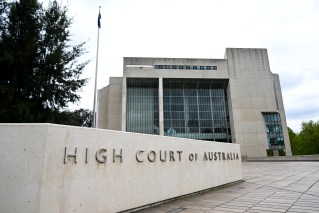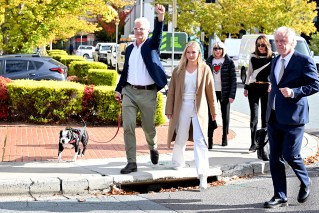Q&A: Operation Sovereign Borders provides refugees human rights, claims author
The architect of Operation Sovereign Borders (OSB) has described the asylum seeker policy as being responsible for giving refugees “the greatest human right” possible.
Speaking on Monday night’s episode of Q&A, OSB co-author Jim Molan branded the scheme a “success”, even when faced with the example of a Syrian refugee who was forced onto a boat despite trying to move to Australia through three legal pathways.
“It is a policy success,” General Molan, a former Australian army major general said. “Twelve-hundred people died when we tried to do it in a different way [regional solution under Labor]. The greatest human right we can give to these people is to be alive.”
The example he was responding to was that of an asylum seeker, named only as Ali, as told by refugee advocate and fellow panelist Shen Narayanasamy.
Ali, Ms Narayanasamy explained, wanted to flee from war-torn Syria to Sydney where his brothers had lived for some time.
He applied to come to Australia through a family reunion visa (30-year wait), a study visa for his son and then a skilled visa (he is an engineer) but was not accepted.
He is now in an offshore processing centre.
Earlier in the evening, General Molan had stated the “legal” pathways were the preferred methods refugees should use to come to Australia, instead of via boat.
But with no other choice, Ali got on a boat bound for Australia.
“He is blocked in every other way,” Ms Narayanasamy said. “So what does he do when bombs rain on his house?
“He gets on a boat and puts his life into the hands of a people smuggler and he comes here and runs into OSB. That man is now spending the last three years on Manus Island. Is that a policy failure or success?”
Watch the exchange below:
‘This limbo status is cruel’
The Kaldor Centre for International Refugee Law’s Professor Jane McAdam described the unknown of Australia’s processing centres as horrific.
“To put people in this limbo status is cruel and to deny them ever the possibility of reuniting with family members is perhaps the worst cruelty you could inflict upon any person,” Prof McAdam said.

Jane McAdam bemoaned our refugee limbo. Photo: ABC
A teacher from the audience had asked the panel if temporary protection visas for refugees in Australia were really necessary, given she saw how they negatively affected her students who were in the country on them.
Another audience member, Shukufa Tahiri, a refugee herself who works in the sector in Australia, claimed temporary protection visas were driving self-harm.
“I think that the rate of suicide and the rate of self-harm is a direct result of the policies that are being imposed on them. The kind of policies that they are being subjected to,” Ms Tahiri said.
“It is the endemic result of prolonged delays, prolonged uncertainty, prolonged uncertainty when adults can’t make decisions for their lives in the next two or three years.”
With the current suicide toll, is it worth such mistreatment of asylum seekers? @Jim_Molan & Huy Truong #QandA https://t.co/qmN930XYs5
— QandA (@QandA) October 10, 2016








